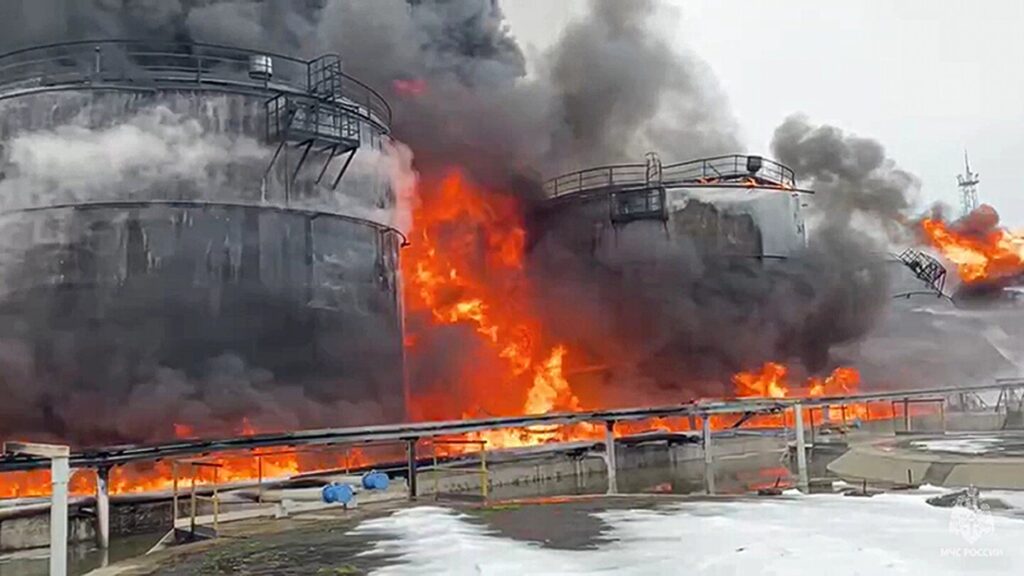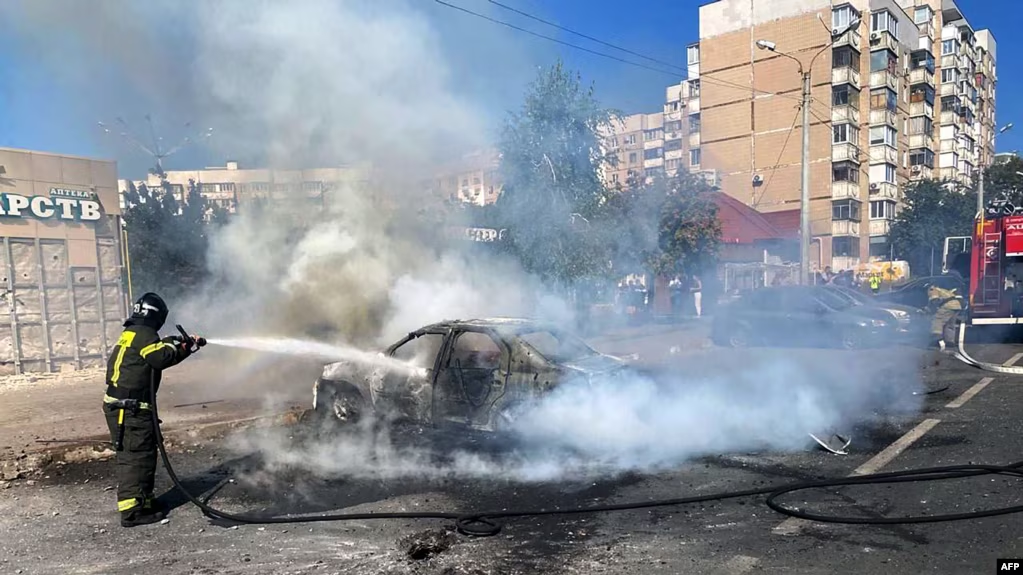Russian authorities have accused Ukraine of launching a massive drone attack early Sunday, targeting multiple regions across Russia, including critical infrastructure in Moscow and the nearby city of Tver. This alleged assault marks a significant escalation in the ongoing conflict between the two nations.

According to Russian defense officials, air defense systems intercepted and destroyed 158 Ukrainian drones. The attacks were widespread, with two drones intercepted over Moscow itself and nine over the surrounding area. The Kursk region, which has seen increased Ukrainian activity recently, was particularly targeted, with 46 drones reportedly intercepted there.
Moscow Mayor Sergei Sobyanin reported that falling debris from two drones caused a fire at an oil refinery in the capital. While the blaze was contained to a “separate technical room,” state news agency TASS later confirmed that emergency services had brought the fire under control. This incident highlights the potential for such attacks to disrupt critical Russian infrastructure.
In Tver, Russian officials claim three drones attempted to strike a coal-fired power plant at Kashira, though no injuries or damage were reported. The scale and targets of these attacks suggest what Moscow sees as a strategic effort by Ukraine to strike at Russia’s energy and industrial capabilities.

Russian authorities view this drone assault as a significant provocation by Ukraine, potentially aimed at striking deeper into Russian territory. The Russian defense ministry emphasized the effectiveness of their air defense systems in thwarting what they described as a coordinated and large-scale attack.
While Ukraine has not immediately commented on these allegations, Russian officials are framing this incident as a serious escalation by Kyiv. They argue that such actions demonstrate Ukraine’s willingness to target civilian infrastructure far from the front lines.
In response to the alleged drone attacks, Russia reported conducting retaliatory strikes on Ukrainian soil. Russian officials claim their forces targeted military infrastructure and command centers in Ukraine, though specific details were not provided.

The reported drone assault comes as Ukraine continues what Russia describes as an offensive in the Kursk region, which began nearly a month ago. Simultaneously, Russian forces claim to be making advances in eastern Ukraine, particularly in the Donetsk region.
Russian authorities are using this incident to reinforce their narrative of Ukraine as the aggressor in the conflict. They argue that such attacks justify Russia’s ongoing military operations in Ukraine and call for increased defensive measures within Russian territory.
As tensions escalate, Russian officials are likely to use this alleged drone attack to rally domestic support for the war effort and to justify potential future military actions. The incident also raises questions about the changing nature of the conflict, with both sides apparently willing to strike targets far from the traditional battlefield.
Russian defense experts quoted in state media suggest that this attack demonstrates Ukraine’s evolving military capabilities, possibly with Western support. They argue that such actions necessitate a reevaluation of Russia’s air defense strategies, particularly around key infrastructure and population centers.
As the situation develops, Russian authorities are calling for international condemnation of what they term Ukrainian aggression, while preparing their citizens for the possibility of further such incidents in the future.



